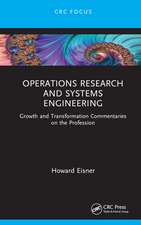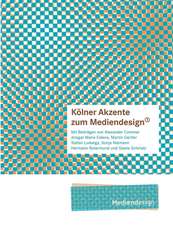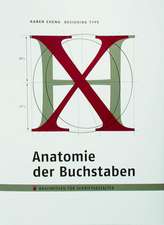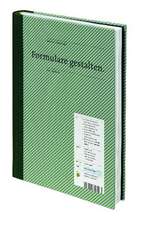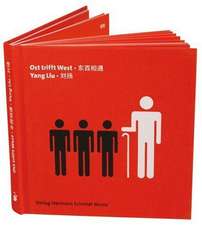Tomorrow's Systems Engineering: Commentaries on the Profession
Autor Howard Eisneren Limba Engleză Paperback – 9 oct 2024
Offering commentaries regarding how the field of systems engineering might evolve over the next couple of decades, Tomorrow’s Systems Engineering: Commentaries on the Profession looks at the potential opportunities that might lie ahead rather than making predictions for the future of the field. The book allows the reader to prepare for the future in terms of technical interest as well as competitiveness and suggests opportunities that could be significant and useful for planning actions in the careers of future systems engineers. Discussions of improvements in how we develop and use software that can help to facilitate and protect overall IT capability within the system design and system architecture are also included.
This book is for systems engineers and software engineers who wish to think now about the directions the field might take in the next two decades.
| Toate formatele și edițiile | Preț | Express |
|---|---|---|
| Paperback (1) | 189.81 lei 6-8 săpt. | |
| CRC Press – 9 oct 2024 | 189.81 lei 6-8 săpt. | |
| Hardback (1) | 319.68 lei 6-8 săpt. | |
| CRC Press – 30 dec 2022 | 319.68 lei 6-8 săpt. |
Preț: 189.81 lei
Nou
Puncte Express: 285
Preț estimativ în valută:
36.33€ • 37.64$ • 30.32£
36.33€ • 37.64$ • 30.32£
Carte tipărită la comandă
Livrare economică 21 martie-04 aprilie
Preluare comenzi: 021 569.72.76
Specificații
ISBN-13: 9781032216232
ISBN-10: 1032216239
Pagini: 136
Dimensiuni: 138 x 216 mm
Greutate: 0.25 kg
Ediția:1
Editura: CRC Press
Colecția CRC Press
Locul publicării:Boca Raton, United States
ISBN-10: 1032216239
Pagini: 136
Dimensiuni: 138 x 216 mm
Greutate: 0.25 kg
Ediția:1
Editura: CRC Press
Colecția CRC Press
Locul publicării:Boca Raton, United States
Public țintă
Academic, General, Postgraduate, and ProfessionalCuprins
1. Toward A Future Environment. 2. Tomorrow’s Systems Engineer. 3. The Systems Engineer as Executive VP. 4. Kinds and Types Beyond the Tipping Point. 5. The Systems Approach and Thinking. 6. Architecting and Modeling. 7. Software Re-Use and Agility. 8. Data and Decisions. 9. Miscellany. 10. Summary.
Notă biografică
Howard Eisner spent 30 years in industry and 24 years in academia. In the former, he was a research engineer, manager, executive (at ORI, Inc. and the Atlantic Research Corporation) and President of two high-tech companies (Intercon Systems and the Atlantic Research Services Company). In academia, he was professor of engineering management and a distinguished research professor in the engineering school of the George Washington University (GWU). At GWU, he taught courses in two departments, dealing with systems engineering, technical enterprises, project management, modulation and noise, and information theory.
He has written twelve books that relate to engineering, systems and management. He has also given many lectures and tutorials to professional societies (such as INCOSE - International Council on Systems Engineering), government agencies (such as the DoD, NASA and DOT), and the Osher Lifelong Learning Institute (OLLI). In 1994, he was given the outstanding achievement award from the GWU Engineering Alumni.
Dr. Eisner is a life fellow of the IEEE and a fellow of INCOSE and the New York Academy of Sciences. He is a member of Tau Beta Pi, Eta Kappa Nu, Sigma Xi and Omega Rho, various honor/research societies. He received a bachelor’s degree (BEE) from the City College of New York (1957), an MS in electrical engineering from Columbia University (1958), and a Doctor of Science degree from the George Washington University (1966).
Since 2013, he has served as professor emeritus of engineering management and a distinguished research professor at the George Washington University.
He has written twelve books that relate to engineering, systems and management. He has also given many lectures and tutorials to professional societies (such as INCOSE - International Council on Systems Engineering), government agencies (such as the DoD, NASA and DOT), and the Osher Lifelong Learning Institute (OLLI). In 1994, he was given the outstanding achievement award from the GWU Engineering Alumni.
Dr. Eisner is a life fellow of the IEEE and a fellow of INCOSE and the New York Academy of Sciences. He is a member of Tau Beta Pi, Eta Kappa Nu, Sigma Xi and Omega Rho, various honor/research societies. He received a bachelor’s degree (BEE) from the City College of New York (1957), an MS in electrical engineering from Columbia University (1958), and a Doctor of Science degree from the George Washington University (1966).
Since 2013, he has served as professor emeritus of engineering management and a distinguished research professor at the George Washington University.
Descriere
This book looks at systems engineering now and comments on the future. It notes the signs of deepening our understanding of the field which includes, digital engineering, interactive model-based systems, decision support frameworks, and points to a grand unified theory.

